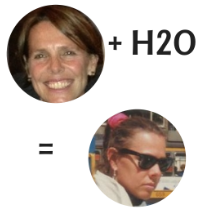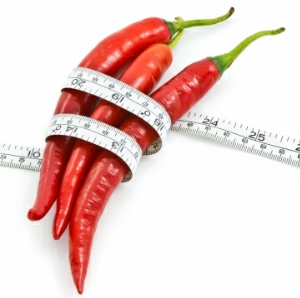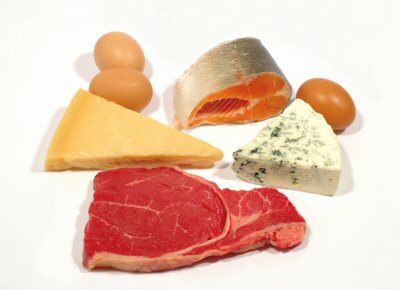 I was asked the other day what would be the one key piece of advice I’d give to someone if they wanted to “improve their fitness”. Wow. What a question. There’s so much that it can cover.
I was asked the other day what would be the one key piece of advice I’d give to someone if they wanted to “improve their fitness”. Wow. What a question. There’s so much that it can cover.
I immediately thought of “get enough sleep”, but then that’s not a particularly easy piece of advice to follow for some people.
“Exercise more” is another obvious one that comes to mind, but again, that could mean many things to many people.
I came up with a few more sage pieces of advice which I’ll probably share with you another day, but none of them hit the spot. Some of it was too running specific, some of it wasn’t necessarily easy to implement, some of it didn’t take into account everybody’s life circumstances. The one piece of advice I arrived at, the one thing that everyone can do, the one thing that could help anyone take the first step towards looking and feeling younger, was something that is sitting right under our noses, and costs next to nothing.
And that something is…………WATER folks. Simple, cost effective and something that many of us need reminding of from time to time!
So, what’s so great about water?
- If you’re well hydrated, your skin will look fresh and clear – because it will help to flush toxins out of the body, and it will increase blood flow to the skin
- Water can aid in weight loss, by ensuring maximum uptake of nutrients from your food. Often, your body’s cry for food is a cry for micronutrients -(vitamins and minerals) not the bulky macronutrients -fat, protein and carbs. In short, water can make you want to eat less
- It helps to eliminate waste from your body in a number of ways, including through the bowel, often eliminating feelings of bloatedness
- Drinking enough water helps with muscle function and improves sporting performance
- Water aids in disease prevention (it has been shown to decrease the risk of colon cancer by 45% and bladder cancer by 50%)
- It just makes you fell better
- It’s pretty cheap and readily available
And did I say it aids in weight loss?
- Water is a natural appetite suppressant. Next time you reach for a snack, think again, and go for water instead. You’ll be surprised how far a glass of water can go towards satisfying your hunger.
- Enough water ensures your body can metabolise fat effectively. Water ensures your kidneys are functioning effectively, which in turns ensures your liver is able to remove toxins and waster from your blood. With your liver switched to maximum efficiency, it can better metabolise fat.
- Water is a great substitute for high energy drinks such as shakes, smoothies, soft drinks, sports drinks. Swap these for a cool glass of water with a slice of lemon, and you’ll be saving calories big time.
What about fitness?
- An inadequate amount of water will impair muscle function, leading to a less functional you
- Too little water will cause your body to slow down, and you’ll lack energy
- Dehydration leads to a reduction in blood volume, impairing performance
- You won’t be able to regulate your body temperature efficiently if you are dehydrated
- As your brain is over 70% water, you can expect to experience headaches if you aren’t well hydrated
If you are chronically dehydrated, leading to the impaired performance outlined above, you can’t train at your optimum level, which means you can’t realise your true fitness potential.
A few tips on staying hydrated
Water Tip #1. Drink the stuff. Even though fish do naughty things in it, you have to drink it to feel the benefits! Tea and coffee count. The caffeine in tea and coffee do act as a very mild diuretic, but the balance is overwhelmingly tipped towards hydration rather than dehydration after a cup of coffee. For caffeine to dehydrate you, you have to consume a lot of it, in a short space of time
Water Tip #2. Add a slice of lemon and/or some mint to your water to make it more interesting. The lemon will also help to stimulate hydrochloric acid
Water Tip#3. Carry water with you throughout the day. Better still, set an alarm to go off every hour. Get up and walk to the water cooler. Pour yourself some water, and drink it! Delicious
Water Tip #4. Limit the amount of water you drink at meal time. Whilst some people will recommend that you fill up on a big glass of water before a meal to help you to eat less, the water will only serve to dilute the hydrochloric acid necessary for the break-down of food.
Water Tip #5. Get into the habit of having a big glass of water when you wake up, or have some hot water with lemon juice for an extra digestive boost
Bonus Tip: For expert advice on health and fitness, train with us. Leave your details here, and we’ll give you a call.





 Don’t obsess about what not to eat. Here are eight foods which could actually help you to lose weight by eating them! You could also take a look at other ways to
Don’t obsess about what not to eat. Here are eight foods which could actually help you to lose weight by eating them! You could also take a look at other ways to
